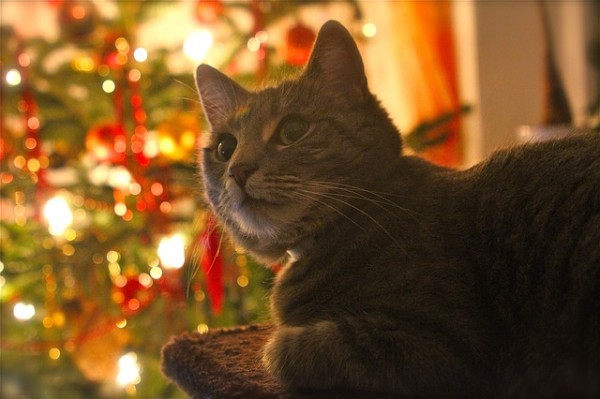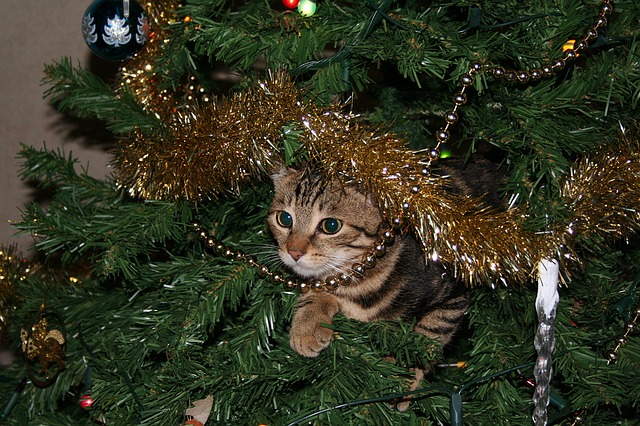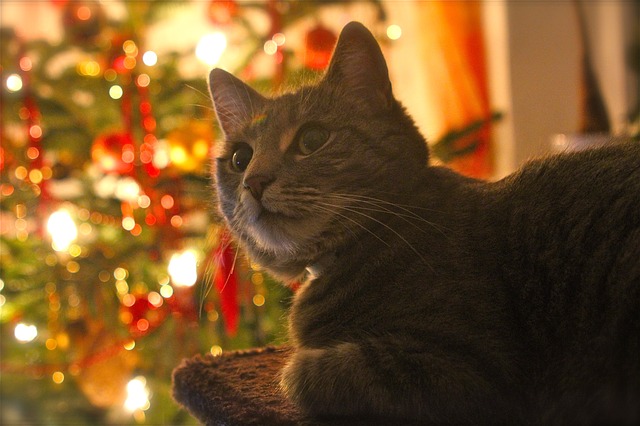Do you need help?

Follow our 11-step guide to avoid a cat-astrophe
If you are thinking about getting a kitten or older cat, it is worth taking a few moments to think about “cat proofing” the house, to help avoid accidents for your new pet and to help keep your belongings safe. You’ve heard the saying “curiosity killed the cat”? There is certainly some truth in the saying and kittens are the worst culprits.
When thinking about possible dangers for your cat, try and think at “cat level”. Remember they are small, agile and have very sensitive noses meaning they will investigate all areas of the house, high and low.

1. Dryers and washing machines
Sadly this is one of the most common accidents for cats within the house and is often fatal. Even a few minutes in either the tumble drier or washing machine can lead to severe injuries including heat stroke, thermal burns, bruising, pulmonary contusions, aspiration pneumonia and head trauma. Check your appliance before every use.
2. Curtains and sofas
Great for climbing up and scratching, both of which are natural behaviours for cats. Ensure your cat has access to a scratching post or area that he is allowed to use and if you need to discourage him from using your curtains or sofa a quick squirt from a water pistol is a good deterrent.
3. Drapery, blind, and electrical cords
Your cat will think these are things to play with. Unfortunately, on occasions, cats get caught up in the cords and then panic. We have seen cats that have got caught up causing damage to their limbs or even strangling themselves. Electrical cords seem to be particularly attractive to cats and kittens with a risk of electrocution. Try and hide all cords under rugs or behind furniture.
4. Wool and sewing thread
Another common problem we see is when cats play with wool or needles and sewing thread. They can get it wrapped around their tongue or swallow it causing a linear foreign body. Linear foreign bodies are especially dangerous as the thread can act like cheese wire and “saw” through your cat’s intestines.
5. Small household items
Rubber bands are a real favourite for my cats to play with. Other items such as paper clips and drawing pins also seem great fun, but all can cause significant injury to your cat if swallowed, so try to keep them out of reach.
6. Household cleaners and other chemicals
Cleaning fluids, antifreeze, and other chemicals are all sources of potential danger for your cat. Pine-based cleaners and those containing phenol are particularly toxic to cats causing serious liver damage. These should not be used on food bowls or in pet areas, sleeping quarters, or litter boxes. Ethylene glycol is the compound in antifreeze. Unfortunately it smells and tastes sweet so cats will drink it. The toxic dose is very small and even a few drops of ethylene glycol in a puddle will be enough to cause serious kidney damage and can be fatal. The longer the delay between ingestion of anti-freeze and initiation of treatment, the less favourable the prognosis. Make sure all chemicals are kept locked securely away.
7. Plants
A cat chewing on your houseplants is annoying for you, but it can be dangerous or even fatal to your cat. The list of potentially poisonous plants includes:
- Lilies (Lilium sp.)
- Marijuana (Cannabis sativa)
- Sago Palm (Cycas revoluta)
- Tulip and Narcissus (Tulipa and Narcissus sp.)
- Azaleas and Rhododendrons (Rhododendron sp.)
- Oleander (Nerium oleander)
- Castor Bean (Ricinus communis)
- Cyclamen (Cyclamen sp.)
- Kalanchoe (Kalanchoe sp.)
- Yew (Taxus sp.)
- Amaryllis (Amaryllis sp.)
- Autumn Crocus (Colchicum autumnale)
- Chrysanthemum (Chrysanthemum sp.)
- English Ivy (Hedera helix)
- Peace Lily (Spathiphyllum sp.)
- Pothos (Epipremnum aureum)
- Schefflera Schefflera (Brassaia actinophylla)
Of these, lily poisoning is the most common we see and can result in kidney failure.

8. Windows and balconies
Cats are generally very athletic and agile, but they can still have accidents including falling from windows and balconies. It is true that cats are very good at landing on their feet, but if they fall from any significant height we normally see a “5-point” landing – 4 legs and chin, so fractures of the jaw (mandible) are common. Other injuries include limb, spinal and rib fractures, bruising and internal injuries.
9. Human medications
Assume all human medications are poisonous to your cat, unless instructed otherwise by your veterinary surgeon. Some every day, over the counter human medications such as paracetamol are highly toxic to cats and can lead to kidney or liver failure and death.
Suggested Tweet
Does your curious cat get up to no good? Cat proof your home with this handy guide from @VetsNowUK: https://goo.gl/axssbC www.vets-now.com/2017/01/cat-proof-your-house/
10. Animal medications
Increasingly animal medications are being made ‘palatable’ to make them easier to give to your pet. The downside is that if your cat gets hold of the medication they may eat more than they should. Make sure you keep all animal medications safely locked away to avoid these cases of self-overdosing.
